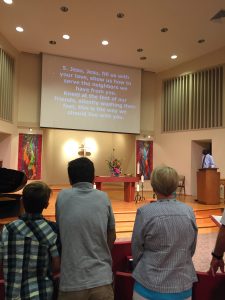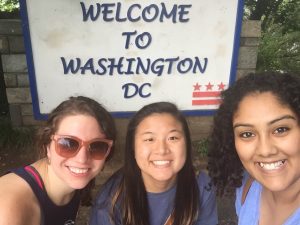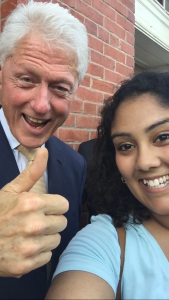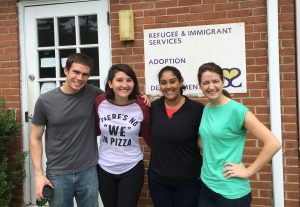The Sunday of Independence Day weekend, I woke up bright and early to attend a worship service at a new church in my neighborhood. Previous weekends, you could find me at what I would consider to be a “popular church”- a well-attended, multi-satellite, free donuts before service kind of congregation located in a theater. You can picture it, can’t you? I’d chosen this welcoming community for the past weeks because I enjoyed the company of a friend who went there. The only inconvenience about this arrangement was that the church was located quite far from where we were living to the point where we had to take a train and walk a significant distance to get there. I had been wanting to support a local congregation for some time, so when my friend went out of town for the weekend I decided to do so then. I spotted a local United Methodist Church one night while roaming the area and had decided that this would be my place.

In the sanctuary singing, “Jesu, Jesu, fill us with your love, show us how to serve the neighbors we have from you…”
Upon arrival, I quickly noticed that this too was a unique community. For one, it was located atop a gas station. Quaint, I thought. What left even more of an impression on me, however, was how eager the church was to extend hospitality to its guests. Walking up to the entrance that Google maps led me to believe existed (sigh), I was guided all along a street that eventually led right up to the door of the church by clear signs that anticipated my history of getting lost (“not all who wander are lost” anyone?). Once I entered, I was greeted by a nice woman who read me like a book. She asked, “You must be new! Are you visiting for the Summer? Perhaps for an internship?”. Coming from a church background where I often offered the hospitality, I was just as eager to be on the receiving end of such warmth in her welcome.
After getting situated in the sanctuary where there were predictably less people in-attendance due to the holiday weekend, I felt good about this decision. There was a different kind of comfort from that which I experienced at the familiar, contemporary-styled church I’d become used to. This comfort was a feeling of being where I needed to be at that moment.
The service began and a man stepped to the pulpit. He announced himself as the guest preacher for this weekend while the home-pastor was away on vacation. The title of the sermon flashed on the projector screen. It read, “Who is My Neighbor?”. I was curious how this message would be similar or different from previous ones I’ve heard in my PK (pastors kid) lifespan. I was not disappointed.
After setting the context of the Biblical narrative as told by Jesus in Luke 10, he changed the direction of the familiar question. He asked, ‘who is not your neighbor?’. Go ahead and read it again, I’ll wait. He explained that the depth of the question as posed to Jesus, who is my neighbor?, is often lost on us as we are quick to answer with a generic response like ‘everyone’. The answer we offer is often so encompassing that its effect is empty. By saying everyone, we actually mean no one because the intentionality and responsibility that should come with that response to who we should specifically be showing care and concern towards is lost. It is hard to admit, but if we are being honest we’ll realize that we do forget about people and sometimes those are the ones who need to be remembered most.




